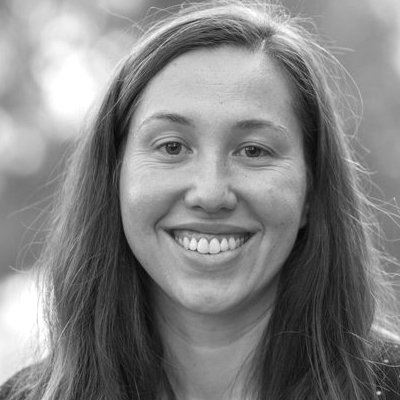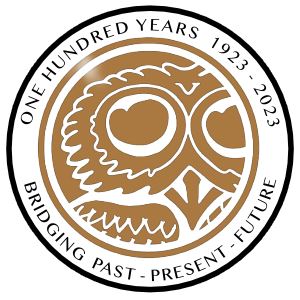|
Australasian Philosophy: Bridging the Past, Present with the Future Centenary Closing Symposium 2023 Thursday 30 November - Friday 1 December 2023University of Sydney Nanoscience Hub, Seminar Room 4001 |
Australasian Philosophy: Bridging the Past and Present with the Future is the closing event of the AAP's Centenary year celebrations. It is a single stream symposium with sessions over two days that showcase distinctive themes concerning the future of Australasian philosophy.
The symposium will open with a special event to honour the philosophical and personal legacy of Marion Tapper, which will be co-hosted with the Australasian Society for Continental Philosophy (ASCP), on the afternoon Wednesday 29 November.
The event takes place alongside and as part of the 2023 Congress of HASS
This event is hybrid, with attendance in person and online via zoom. The event is free. In person places are limited.
Program
Thursday 30 November
Session 1: 11:00am – 12:30pm
Indigenous Philosophy and the Future of Australasian Philosophy





What are the contributions made by First Nations Philosophers to wisdom and research in the academe? What can non-Indigenous Australasian philosophers and scholars learn from Indigenous ways of being, knowing, and doing? Why is it so important to acknowledge the diversity of Indigenous Philosophies? What are the calls for vigilance and the hopes communicated by Indigenous Philosophers? What ought to be the future of the decolonising program? In this session, three Indigenous philosophers at different career stages and one ally will reflect on these questions and imagine flourishing futures for Indigenous Philosophies in Australasia.
Convenor: Nicolas Bullot Charles Darwin University
Panellists: Oscar Davis Bond University, Joanne Faulkner Macquarie University,
Taylor-Jai McAlister Macquarie University, Krushil Watene University of Auckland.
Oscar Davis is an Indigenous Fellow and Assistant Professor in Philosophy and Indigenous studies at Bond University. With Aboriginal (Gamilaraay) heritage on his mother’s side, and Papua New Guinean (Tatana/Ranubada) heritage on his father’s side, Oscar is interested in how Indigenous Australian and Melanesian ways of being, doing, and knowing can inform the ontological foundations of our moral responsibility with the environment. Oscar also explores how evolutionary biology has shaped moral discourse. In particular, Oscar’s research in metaethics critically analyses the evolutionary debunking argument, where the evolutionary processes which formed our moral sense are said to undermine the objective, stance-independent truth of moral facts.
Joanne FaulknerHer research investigates the ways in which representations of childhood circulate in Australian culture to manage anxieties about national identity and history; and, particularly, the specific meanings attributed to Aboriginal children as sites of mediation, intervention, and impasse between settler-colonial and First Nations peoples.
Reflecting on the future of Indigenous philosophy – lessons from other disciplines, and the value of diverse epistemologies
Taylor-Jai is a proud Aboriginal woman, a psychologist (clinical psychology registrar) and a PhD candidate. Interests clinically include working with Aboriginal adolescents and their family through a trauma-informed lens. Her research interests include race philosophy and Aboriginal cultural identity as a protective factor for social and emotional wellbeing. She is co-author of the AAP report on Indigenous participation, which is available here: aap.org.au/Indigenous-participation.
My research addresses fundamental questions in ethics, politics, and Indigenous philosophy. In particular, it engages at the intersections of diverse philosophical traditions, trans-disciplinarity, and the role of local communities for global change. My primary areas of expertise include mainstream theories of well-being, development, and justice (particularly the capability approach), intergenerational justice, and Māori philosophy.
Thursday Session 2: 1:45pm – 3:15pm
Philosophical Progress and the Future of Australasian Philosophy




How, if at all, can we plausibly measure philosophical progress? If philosophical progress is to be understood in terms of knowledge acquisition, then should pervasive disagreement concerning central philosophical problems make us sceptical about the future of academic philosophy? Do the most substantial successes of contemporary philosophy stem from interdisciplinary endeavours? If so, what is it that philosophers supply to said endeavours? In this panel, these questions and related ones will be broached by three field-leading philosophers. They will do so from their respective positions as prominent members of the Australasian philosophical community.
Convenor: Elena Walsh University of Wollongong
Panellists: Paul Griffiths University of Sydney, Kristie Miller University of Sydney, Glenda Satne University of Wollongong
Progress through Interdisciplinarity in the Philosophy of Life Science
Progress, Interdisciplinarity, and the Nature of Time and Temporal Experience Progress in Philosophy of Mind: Models, Methods and PracticesThursday Session 3: 3:45pm – 5:15pm
Methodologies and the Future of Australasian Philosophy




"Methodologies and the Future of Australasian Philosophy," convened by Marguerite La Caze, features insightful discussions on the evolution of philosophical methodologies. Marilyn Stendera examines how methodological approaches in philosophy shape the discipline's future and its societal impact. David Macarthur challenges the view of philosophy as an empirical discipline, proposing art criticism as a more reflective and imaginative model. Daniel Brennan explores the inclusion of non-traditional philosophers and Indigenous knowledge, highlighting the philosophical significance of figures like Martin Luther King and Tyson Yunkaporta. Together, these panelists offer diverse perspectives, enriching the dialogue on the future of philosophical practice and discourse in Australasia.
Convenor: Marguerite La Caze University of Queensland
Panellists:
Marilyn Stendera University of Wollongong, Daniel Brennan Bond University, David Macarthur University of Sydney
Methodologies and the future, methodologies of the future
This paper proceeds from the claim that thinking about method in philosophy is also always a way of thinking about the future. It will explore how different conceptualisations of method generate, challenge, and foreclose various futures, not only for the discipline itself, but also the individuals and institutions that shape and are shaped by it.
Art Criticism as a Model for (the future of) Philosophy
Method is fundamental in philosophy. The dominant method today is to suppose, with Quine, that philosophy is “continuous” with (natural) science so that it becomes a broadly empirical discipline. I will argue that is a bad model for philosophy since philosophy is a form of armchair reflection on ourselves, and the world we live in. Surprising as it might sound, art criticism provides a more fruitful model for philosophical endeavour given that it is based on reflection upon our experience of objects produced to stimulate the imagination in ways that can help us reimagine ourselves and our place in the world.
Reimagining Philosophical Boundaries: Who gets to be a philosopher?
This paper explores the expanding role of non-traditional philosophers and public figures within philosophy. First we explore the recent philosophical embrace of Martin Luther King in To Shape a New World, and then we explore the rich and emerging discourse with Indigenous knowledge exemplified in the work of Tyson Yunkaporta. The rethinking of philosophical methodologies to include thinkers not traditionally associated with philosophy is an important step in creating a more inclusive, diverse, and insightful philosophical landscape for Australasian philosophy.
Friday 1 December
Session 4: 9:00am – 10:30am
Environmental Issues and the Future of Australasian Philosophy




"Environmental Issues and the Future of Australasian Philosophy," convened by Adrian Walsh, delves into environmental challenges' impact on philosophy. Jeremy Moss examines the incorporation of climate justice into transition plans, focusing on the conceptualisation of climate harms and justice. Garrett Cullity addresses the ethical dimensions of net zero targets, discussing their attainment and ethical implications. Luara Ferracioli rethinks parental responsibility in the face of climate change, emphasising the need for moral education over individual achievement. Each panelist brings a distinct perspective, collectively offering a comprehensive view of how environmental issues are reshaping philosophical discourse and practice in Australasia.
Convenor: Adrian Walsh University of New England
Panellists:
Jeremy Moss University of New South Wales, Garrett Cullity Australian National University,
Luara Ferracioli University of Sydney
This session will explore some of the key challenges for Australian philosophy posed by environmental issues. The session will focus on three specific areas – meeting net zero targets, climate and parental responsibility, and climate justice.
Climate and the Challenges of Justice
Environmental issues raise many challenges for philosophy. This talk will focus on some of the challenges that are posed by the incorporation of a robust account of climate justice into climate transition plans. The first challenge concerns how to conceptualise a contribution to a climate harm and how to determine who is responsible for climate harms. The second concerns how we are to understand climate harms when they are often a product of non-climate causes. Finally, what are the grounds for arguing for a ‘comprehensive’ or ‘maximal’ conception of justice in relation to climate change.
The Ethics of Net Zero
Net zero declarations -- pledges to make no net addition to the global atmospheric concentration of greenhouse gases by some target date – have been made by many organizations and institutions. They raise a range of important ethical questions: questions about the attainment, adoption, promotion and coordination of net zero targets. This talk will briefly survey those questions, and illustrate the contribution that philosophy has to make in answering them.
Reconceiving Parental Responsibility in a Burning World
How should we conceive of parental responsibility in a burning world? In this presentation, I engage with Danielle Celermajer’s work and suggest that climate change requires us to break from institutional norms and conceptual frameworks that apply to the family qua institution. This requires prospective procreators and parents to think much more critically about the role the family plays in upholding norms and practices that produce climate change and its devasting impacts. In this context, parental education for moral life becomes much more important than parental support for individual success and achievement.
Friday Session 5: 11:00am – 12:30pm
Philosophy for Children and the Future of Australasian Philosophy




"Philosophy for Children and the Future of Australasian Philosophy," convened by Kaz Bland, showcases the evolving landscape of educational philosophy. Kaz Bland leverages Philosophy for Children (P4C) tools to nurture thinking communities, evident in projects like Eurekamp Oz and Philosothon. Peter Ellerton focuses on enhancing teachers' pedagogical expertise in critical thinking. Britta Jensen leads an initiative on critical and creative thinking, employing comprehensive approaches at the Centre for Critical Thinking and Ethics. Sandra Lynch delves into the best practices in ethics teaching, aiming to equip students for meaningful contributions to their professions and society. This panel collectively highlights the importance of innovative thinking and ethical understanding in shaping the future of philosophical education in Australasia.
Convenor: Kaz Bland University of Western Australia
Panellists: Britta Jensen Newington College, Peter Ellerton University of Queensland,
Sandra Lynch University of Notre Dame, Australia
Lecturer in philosophy at UWA and is a director of NFP PEiPL Ltd. Kaz and her team use P4C tools to build thinking communities through several projects, including school holiday program Eurekamp Oz!
Founding director of the UQ Critical Thinking Project. His focus is on the development of teacher pedagogical expertise in critical thinking, aka teaching for thinking.
Britta Jensen is leading a teaching for thinking initiative including a detached and embedded whole of school approach to critical and creative thinking at the Centre for Critical Thinking and Ethics, Newington College, Sydney.
Director of the Institute for Ethics and Society and Professor of Philosophy, University of Notre Dame Australia (Sydney campus). Her research into best practice in the teaching of ethics is underpinned by a commitment to ensuring that our students develop the confidence and competence to contribute to the flourishing of their professions and of the societies of which they are part.
Friday Session 6: 1:45pm – 3:15pm
The Philosophy and Ethics of AI and the Future of Australasian Philosophy




"The Philosophy and Ethics of AI and the Future of Australasian Philosophy," convened by Tracy Bowell, features analyses of AI's cultural impact (Inês Hipólito), educational uses of LLMs (Mark Alfano), and the intersection of AI with ethical learning practices (Simon Knight). Each panelist contributes a unique perspective: Hipólito views AI through the lens of human culture, Alfano explores metaphors for LLMs in education, and Knight considers the strategic role of learning in the ethical use of AI. Together, they provide a multifaceted examination of AI's role in shaping future philosophical discourse and practice in Australasia.
Convenor: Tracy Bowell University of Waikato, AAP CEO
Panellists: Inês Hipólito Macquarie University, Mark Alfano Macquarie University,
Simon Knight - University of Technology, Sydney
In her contribution, Dr Ines Hipolito challenges the growing belief in AI consciousness and advocates for viewing AI as a product of human culture. Examining AI within the framework of cultural practices, she explores the intricate interplay between AI and human cognitive behaviour. Focusing on the cultural impact of AI-generated content, particularly Language Model Models (LLMs), she asserts that AI, as a cultural artifact, significantly influences societal narratives. This cultural influence, in turn, shapes human cognitive behaviours, offering new perspectives on the implications of AI on mental health and well-being. The study calls for a nuanced understanding of AI within cultural contexts to navigate its societal implications responsibly.
Associate Professor Mark Alfano’s contribution examines the potential educational uses of chat-based Large Language Models (LLMs), moving past initial hype and scepticism. Although LLMs outputs often evoke fascination and resemble human penmanship, they are unpredictable and must be used with discernment. He explores several metaphors—like calculators, cars, and drunk tutors— that highlight distinct models for student interactions with LLMs. He suggests that LLMs hold a potential in students’ learning by fostering proleptic reasoning through scaffolding, i.e. presenting a technological accompaniment in anticipating and responding to potential objections. Here, the technical limitations of LLMs can be reframed as beneficial when fostering anticipatory reasoning. Whether their outputs are accurate or not, evaluating them stimulates learning. LLMs require students to critically engage, emphasizing analytical thinking over mere memorization. This interaction helps solidify the distinction between mere belief and true knowledge. He goes on to explore how engaging with LLMs can prepare students for constructive collective discussions and provide first steps in addressing epistemic injustices by highlighting potential research blind spots. Thus, while acknowledging the sociopolitical and ethical complexities of using LLMs in education, we suggest that when used in an informed way, they can promote critical thinking through anticipatory reasoning.
Dr Simon Knight’s contribution addresses recent projects that share, in part, a strategic and practical aim: how do we position learning as central to ethical (dis)engagement with AI, in the context of thinking about the future of Australasian research on learning? With respect to the future of Australasian philosophy, he identifies and discusses synergies with directions in Australasian research on learning, particularly in his own work. These include issues around the aims of education, challenges around the normative epistemic features of education (including assessment), and ethical issues including uncertainty and fairness in the context of algorithmic decision making. In that work he emphasises that although researchers should of course care about AI in education, because it's obviously an area that will be impacted (and we thus we need to support student and teacher learning), there are also many basic research questions to address. He addresses some of these in detail, discussing his ongoing collaborations with philosophers on these issues.
©Australasian Association of Philosophy. ACN 152 892 272 ABN 29 152 892 272
